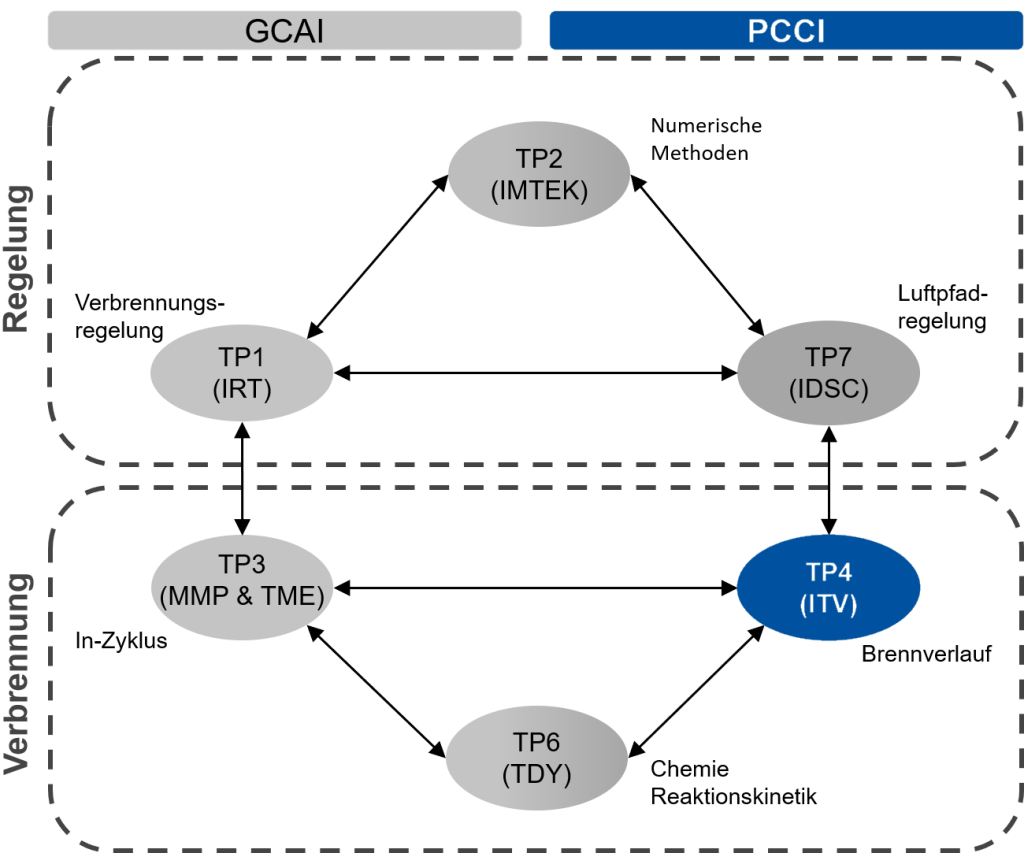Subproject 4: Control of partially homogenized combustion in diesel engines by fully variable injection
Subproject 4 (Teilprojekt 4) is being investigated by the Institute for Combustion Technology (ITV) at RWTH Aachen University. The project focuses on the optimization of partially homogeneous combustion in a compression ignition internal combustion engine.
To this end, a multi-scale control system for PCCI combustion is first being developed, which uses injection or the combustion process as the central control variable.
Optimization of the low-temperature kinetics and a reduction of the models will support the analysis of the measurements by means of CFD simulations.
Hereby, the correlations between NTV and a controlled HTV on performance indices of the engine shall be analyzed.
Furthermore, an ion current sensor will be integrated into the experimental vehicle and ion current kinetics will be developed. This will make it possible to use this signal for combustion control in order to achieve optimum control of the NTV.
Goals in the second funding period
- Identification and analysis of the interaction of NTV and alpha process strategy and its impact on performance metrics.
- Description of the injection/combustion progression and combustion progression/emissions interrelationships through reaction kinetic modeling approaches, especially with respect to very early heat release.
- Simplification of models for real-time PCCI combustion control.
Highlights of the first funding period
- Investigation of PCCI combustion by one to two pre-injections
- Investigation of a pressure curve-controlled combustion
- Identification of the relationship between combustion curve and performance
- Mapping of the pressure curve by a principal component analysis (PCA)
- Coupling PCA with artificial neural networks (ANN) to map emissions and efficiencies
- Modeling of the injection process by detailed measurements on the injection rate test bench
- Prediction of combustion using 0D simulations for the development of real-time combustion controllers
- Optimize the reaction mechanisms of the low-temperature combustion (LTC)
- Detailed CFD simulations of the combustion modes


Univ.-Prof. Dr.-Ing. Heinz Pitsch
Subproject Leader

Dr.-Ing. Dipl.-Wirt.-Ing. Joachim Beeckmann
Subproject Leader

Dr.-Ing. Stefania Esposito
Research Associate

Dominik Golc, M. Sc.
Research Associate

